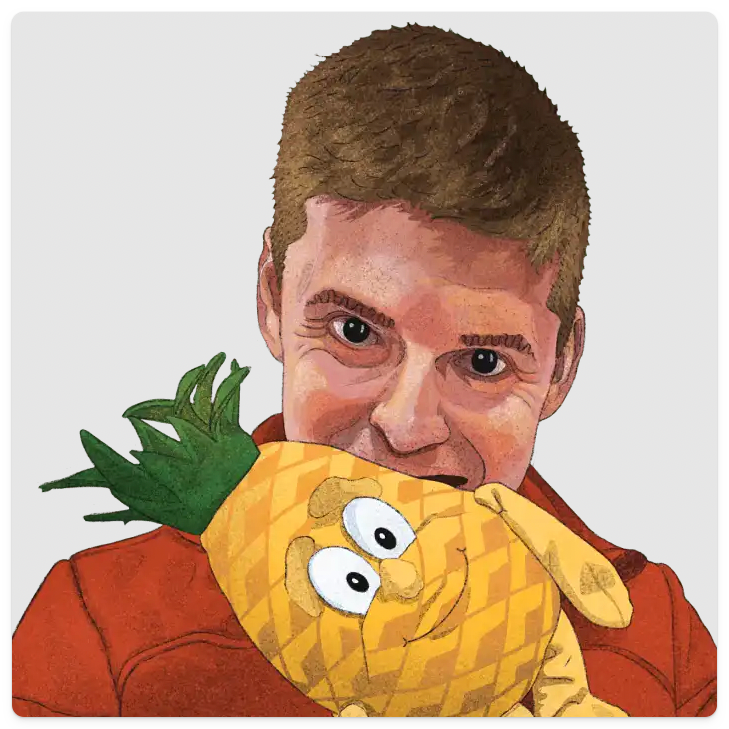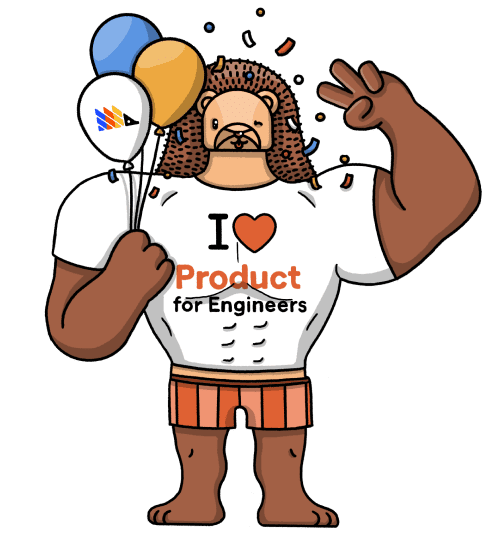What we learned about hiring from our first five employees
Apr 15, 2024

Companies are mostly about people.
It doesn’t matter how good your idea is, or how much money you raise, who you do or don’t hire will make or break it.
They’re also, more often than not, the largest expense, so it pays to pick the right people from the start.
Our first five hires are still with us, four years and 39 more people later. This is what we learned from hiring them.
1. Marius Andra

In spring 2020, shortly after PostHog was founded, co-founders James and Tim faced a choice:
- Push back their planned launch, so they could ship with SDKs for mobile, desktop, and other programming languages.
- Get some help, so they could launch on time with the libraries they wanted.
Delaying felt wrong, so they chose to get some help.
James found Marius via a hobby project he’d posted on Hacker News. Marius was working on similar problems, so James offered Marius some contract work to build PostHog’s initial SDKs.
It didn’t take long to realize they should hire Marius full time. “Just from watching him do some actual work with us, it was really clear that he was very talented.”
Today, Marius leads our Product Analytics Team. He’s been instrumental in refactoring all our insights to use HogQL, which fixes whole classes of bugs, and enables engineers to do cool things in PostHog using SQL.
What we learned: Great people will find ways to shine if you give them the chance. Contract work is a great way to do this, especially for early-stage companies. This initial trial with Marius was the genesis of our SuperWeek / SuperDay process, which we use to make final decision on potential hires.
2. Eric Duong

James and Tim wrote our public handbook before they hired anyone else. The handbook helped them:
- Figure out what kind of company they wanted to build.
- Made the company look more mature from an outsider's perspective.
- Was a great advert for potential hires.
Eric was the first employee to apply for a job at PostHog and do a SuperWeek. James and Tim interviewed him separately, and both concluded he was smart and scrappy – two values we crave in every PostHog employee.
James on Eric: “He was supposed to start on a Monday, but over the weekend he’d already shipped a bunch of stuff. So, before he even started, we already knew that we were going to end up hiring Eric, too.”
Eric has worn many hats since joining PostHog, building many of our user-facing features and dabbling a little in the backend, too. He’s currently building our data warehouse for startups, which is in feature preview/beta.
What we learned: Define what you value before you start hiring. Creating the handbook helped James and Tim understand the kind of people who would make PostHog a success, which made choosing Eric easy. It's hard to retrofit a culture when you've already hired a dozen or so people, so don’t delay.
3. James Greenhill

In the early days, James would check out people who starred the GitHub repo and sometimes get in touch to gather feedback. One day, he spied a data engineer at Uber, James Greenhill (aka Jams), had left a star and this piqued his interest.
On a call, Jams explained Uber had built a bunch of internal tools like PostHog for data control reasons. He found the project interesting and wanted to work on it, so he did a SuperWeek like Eric and Marius.
James on Jams: “It was obvious. We were learning tons from him around how to make the platform more scalable. He'd worked at a ton of really impressive places, but we didn't go outbound looking for him. He was someone who'd used the project, or he thought it was cool, so he was already qualified, just being interested.”
Jams masterminded our migration from Postgres to Clickhouse, and scaling PostHog, so it can handle billions of events. He remains one of our infrastructure gurus while he works on building our data warehouse with Eric.
What we learned: Don’t just rely on job ads, especially early on. Your first users could be your best hires because they likely understand the problem you’re trying to solve. Many of our best hires have come from recommendations, communities, and serendipitous connections.

Subscribe to our newsletter
Product for Engineers
Helping engineers and founders flex their product muscles
We'll share your email with Substack
4. Lottie Coxon

Lottie is a graphic designer, and PostHog's first non-engineering hire. Why did we hire Lottie? Well, there's a short version and a long version. Here's the short version...

Believe it or not, this is PostHog's original logo/mascot – lovingly dubbed "hairy thumb". Do you really need the long version? Here it is, anyway.
James and Tim knew they wanted to build a product that appealed to engineers. And, if they were going to win, they decided PostHog needed a unique brand.
James: “Everyone else has blue websites that are super boring. So we're going to name ourselves after a hedgehog. We're going to have a weird, unusual style because we are the weird and unusual one that's joined, and that's how we'll win. We're not going to win by being the same."
Tim found Lottie on Twitter and loved her “really weird” and “kinda cool” portfolio.
Like previous hires, Lottie did some paid contract work first and immediately impressed. Tim: “Watching Lottie do her job felt like watching someone perform magic to us.”
Lottie is responsible for all the cool artwork and branding on our website, our awesome merch, and so much more. You can see how it’s evolved over time below.
What we learned: Talent compounds. Lottie was early in her career when she joined PostHog, but she quickly showed she had bags of talent. Don't just look for plausible looking resume, look for talent that will motivate others to do their best work.
5. Michael Matloka

Michael found PostHog via a "Who's hiring?" thread on Hacker News when he was 18 and still at school.
His was the first role where James and Tim interviewed multiple candidates. Despite being just two weeks from finishing high school, Michael stood out because:
- He already had a successful side project with 10,000 users. It proved he could ship products from front to back and do full stack.
- He was passionate about development.
- He thought a bit like a product person.
Once again, he did a paid SuperWeek and proved he had the same characteristics that made Marius, Eric, Lottie, and Jams successful.
Michael currently works on the product analytics team, and he built a lot of what we call PostHog 3000 – our UI overhaul to make PostHog feel more like a dev tool.
What we learned: Look for T or M-shaped people. This is especially important for your early hires. You can't afford to hire specialists in every arena, so it's vital to find people who are experts in one or two disciplines, but are capable in others as well. Michael's experience of shipping his own project showed he had that quality.

Subscribe to our newsletter
Product for Engineers
Helping engineers and founders flex their product muscles
We'll share your email with Substack
